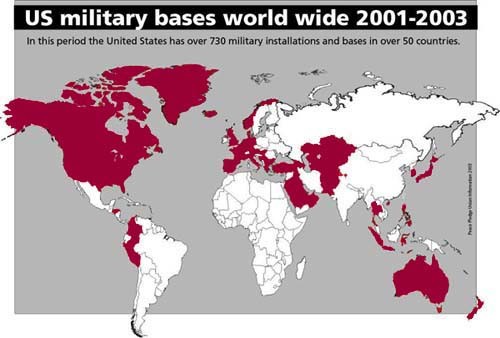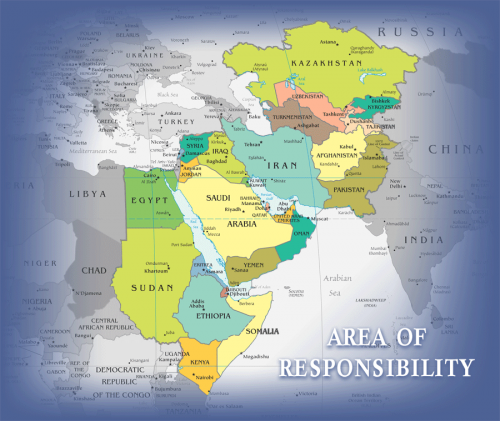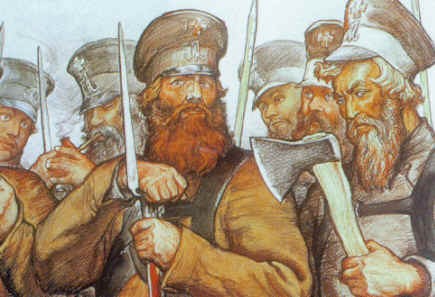
Archives de SYNERGIES EUROPEENNES- 1997
La place de la Russie dans l'histoire de la diplomatie européenne
Intervention de Robert Steuckers lors du 1er Colloque de l'Atelier régional d'Ile-de-France de Synergies Européennes, le 8 mars 1997
On ne peut évaluer la place et l'importance de la Russie dans la tradition diplomatique européenne que sur base des textes existants. Les premiers textes valables pour juger l'émergence de la Russie dans la réalité politique européenne datent de l'époque de Pierre le Grand. Ce Tsar a manifesté durant son règne la volonté de faire de la Russie un Etat organisé à l'européenne, participant pleinement au concert des Etats européens. Cette volonté peut se concrétiser dès l'effondrement de la puissance polono-lithuanienne qui conduira aux partages successifs de la Pologne, achevés tout à la fin du XVIIIième siècle.
Cependant, en dépit de la volonté de Pierre le Grand, la Russie ne se laissera jamais appréhender par les mêmes concepts politiques et géographiques que le reste de l'Europe. Cette différence est due à la qualité, aux dimensions et à l'immensité de son territoire, qui fait charnière entre l'Europe et l'Asie. Dès le départ, dès les premiers textes rédigés en Europe sur la Russie et destinés aux chancelleries, on perçoit la dimension eurasienne de la Russie, malgré la volonté de Pierre le Grand de s'aligner exclusivement sur l'Europe.
Aujourd'hui, les cercles politiques et culturels européens, toutes tendances confondues, font désormais face à une Russie complexe, immense, tout à la fois européenne et asiatique, échappant aux règles des idéologies occidentales. Ils ne font plus face à une URSS à l'idéologie monolithique, parfois plus aisée à comprendre, encore que les arcanes peu déchiffrables de la soviétologie ont souvent induit en erreur des soviétologues patentés comme Alain Besançon ou Hélène Carrère d'Encausse... Récemment, pendant l'été 1993, la presse à sensation de Paris a parlé d'une alliance entre “rouges” et “bruns”, de l'émergence inquiétante d'un bloc “national-communiste”, en embrayant sur des phénomènes somme toute superficiels et sans tenir nullement compte de la longue histoire des rapprochements et des ruptures entre la Russie, d'une part, et les autres puissances européennes, d'autre part. La phobie du complot “rouge-brun” a fait long feu car les connaissances historiques lacunaires des quelques journalistes fort prétentieux et très braillards qui ont déclenché le scandale étaient bien maigres. Leur bricolage n'était qu'un jeu médiatique. Quant à ceux qui se sont déclarés “rouges-bruns” dans la foulée, pour entrer dans le jeu des hystéries médiatiques et faire parler de leurs personnes, on décèle aisément chez eux une volonté d'apparaître comme de “grands scandaleux”, de “grands méchants loups”, additionnant toutes les rigueurs des totalitarismes stalinien et hitlérien de ce XXième siècle.
Pour éviter la répétition malheureuse de telles sensations médiatiques, pour échapper aux hypersimplifications de la presse parisienne, il m'apparaît nécessaire de retourner à l'histoire de la diplomatie européenne et de voir comment le rapport Europe/Russie est perçu dans les chanceleries et comment il transcende et chevauche les étiquettes de “gauche” et de “droite”. Il convient d'examiner comment les concepts de la géopolitique sont nés il y a près de 300 ans, au départ de réflexions sur l'immensité du territoire russe, ensuite de voir comment ils ont été articulés dès l'époque napoléonienne. Il convient de déceler quelles polarités ont été mises en exergue dans le contexte tourmenté des guerres de la Révolution et de l'Empire, de voir comment les conflits ont été explicités.
Accusé d'avoir fait partie de ce complot “rouge-brun” pour avoir participé à un débat avec Ziouganov, président du PCFR, et Volodine, son ajoint et conseiller, à Moscou en avril 1992, débat portant sur une alternative éthique au néo-libéralisme (!), sur l'œuvre de François Perroux, sur l'anti-utilitarisme, débat retransmis ensuite dans la presse russe (Dyeïnn) et serbe (Duga), j'étais redevable d'une explication, non pas aux ignares de la presse parisienne mais à mes lecteurs et à mes abonnés. Je m'étais déjà expliqué par bribes dans un interview (cf. NdSE n°2; versions portugaise et néerlandaise également disponibles). J'entends, dans cette allocution qui deviendra très prochainement texte, être plus exhaustif. J'avais le devoir d'approfondir la question pour confondre les piteux, médiocres et minables journalistes parisiens du Monde et d'autres gazettes de bas étage qui se sont donnés en spectacle pendant l'été 1993. J'avais le devoir intellectuel de retourner au réel pour réduire à néant les simplifications esthétisantes des néodroitistes et nationaux-révolutionnaires parisiens, relevant de la même engeance journalistique que leurs adversaires, qui n'ont pas de projets cohérents ni de discours étayés, mais qui aiment à répéter “je suis un grand méchant” ou un “grand-pervers-qui-pense-tout-ce-qui-est-interdit-de-penser”. Afin, bien sûr, de ne plus jamais se laisser embarquer dans un jeu médiatique aussi stérile que celui de l'été 1993.
Les spéculations sur la nature politique et géographique de la Russie commencent dans l'œuvre de Leibniz, qui a cumulé les positions de philosophe, de mathématicien, de conseiller du Prince et de diplomate. Pour la première fois, Leibniz livre à ses lecteurs européens une réflexion politique profonde sur la Russie. Leibniz a forgé des concepts instrumentalisables pour faire face à la nouvelle réalité géographique et politique qui se présentait aux portes de l'Europe. Pierre le Grand venait en effet d'annoncer qu'il ferait de la Russie un Etat européen, participant au concert des nations européennes. En 1669, Leibniz réagit face à la question polonaise. La Pologne, voisine de la Russie, était, avant l'émergence de celle-ci, la puissance la plus “orientale” de l'Europe. Cette Pologne était une “république aristocratique”, tolérante sur le plan religieux, fantaisiste sur le plan culturel et littéraire, brillante dans les arts, fébrile et mobile sur le plan militaire, avec sa cavalerie portée par un “mythe sarmatique”, où l'aristocratie polonaise se décrivait comme la descendante de cavaliers sarmates venus d'Iran, du Caucase et des régions pontiques. La monarchie de cette Pologne était élective. Avant l'élection du nouveau monarque, l'Allemand Leibniz donne son avis: il est alors “russophobe”, se méfie de cet immense pays dont on connaît finalement peu de choses, et espère la défaite du candidat qui a les faveurs de la Moscovie. Sinon, dit-il, le “rempart polonais” qui protège l'Europe va tomber, ce qui amènera les “barbares asiatiques” au centre de notre sous-continent et aux frontières du Reich. Ceci est la première position de Leibniz et elle est anti-russe.
Mais très vite, cette position se juxtaposera à une deuxième: il faut inclure la Russie dans une grande alliance européenne anti-turque («Quid si ergo posset Moscus quoque in anti-turcicum foedus pellici»). En effet, avant sa longue désagrégation, la Pologne était forte. Rappelons l'intervention des troupes de Jan Sobiesky et du Hongrois Janos Hunyadi lors des Croisades anti-ottomanes dans les Balkans et lors de la défense de Vienne aux XVième et XVIième siècles. La Russie de Pierre le Grand devra reprendre à son compte la fonction de cette puissante Pologne de Sobiesky. Telle est la seconde position de Leibniz.
Dans la troisième position qu'il adopte face à la Russie montante, Leibniz jette les bases de ce qu'il est convenu d'appeler l'“eurasisme”. Dans son texte de 1697, Novissima Sinica, Leibniz écrit que la masse continentale euro-asiatique compte deux anciennes civilisations: 1. Rome/Europe (le Reich); 2: La Chine. La Russie, poursuit-il, doit faire le lien entre ces deux civilisations en organisant son propre territoire. L'Europe acquerra un avantage si c'est elle qui communique à la Russie les recettes de la “bonne” organisation politique, territoriale, administrative, etc.
Dans sa quatrième position, Leibniz parle de la Russie comme d'une tabula rasa, comme d'un espace vierge, où l'on pourra tester toutes sortes d'expériences. La Russie est un pays qui offre des milliers de possibilités (comme on le dira plus tard des Etats-Unis). Il permettra d'absorber une immigration paysanne allemande.
Dans sa cinquième position, prise en 1712 lors de la guerre entre la Suède et la Russie pour la maîtrise de l'axe fluvial “gothique”, joignant la Baltique à la Mer Noire, afin d'assurer la translation de l'héritage polono-lithuanien. Leibniz, Allemand, s'oppose à toute expansion de la Russie vers le Nord, mais favorise toute expansion vers le Sud. Cette position allemande est une constante: on l'a vu se manifester lors de l'indépendance des Pays Baltes (en 1919 comme en 1991), de la Finlande, dans les intentions lisibles en filigrane dans les clauses du Pacte germano-soviétique de 1939, dans les concessions accordées en théorie par Jirinovski aux Suédois et aux Allemands dans son projet de “grande avancée vers le Sud”. Symptomatique est le fait que Jirinovski insiste si fortement en Allemagne et en Suède sur l'orientation méridionale des hypothétiques efforts de “sa” future Russie.
Dans sa sixième position, Leibniz approfondit sa réflexion sur la qualité de tabula rasa du territoire russe. La Russie est vierge, dit-il, on peut y importer tant les vices que les vertus de l'Europe. Mais Leibniz est pessimiste, conservateur. Pour lui, l'Europe décadente est travaillée et minée par ses vices. Il raisonne binairement en opposant une Europe décadente à une Russie pure. Adepte de l'idéologie des Lumières à ses débuts, Leibniz poursuit un objectif pédagogique: si la Russie est pure, vierge et “mineure”, elle peut devenir l'objet d'une pédagogie vertueuse et éviter ainsi d'entrer directement en décadence à cause de ses nouveaux contacts avec l'Europe malade.
En résumé: l'Europe, par la voix de Leibniz, est favorable à la Russie quand elle avance ses pions vers le Sud contre les Turcs, vers la Mer Noire, mais pas encore vers les Balkans, territoire réservé à l'époque aux Hongrois et aux Autrichiens, protecteurs des Serbes, après la libération de Belgrade en 1717/18. En revanche, l'Europe se montre hostile à la Russie quand elle avance ses pions vers le Nord. Comme Leibniz, elle se montre pro-suédoise, pro-polonaise (puis pro-ukrainienne), car, pour elle, l'axe gothique est un espace intermédiaire entre la Russie et l'Europe, qui a une logique propre qu'il convient de conserver, tandis que l'espace balte est un indispensable espace de transition entre Russes, Suédois et Allemands
Herder précisera cette vision d'un espace balte d'échange culturel. Herder est le père des nationalismes germaniques et slaves, le théoricien de la relativité culturelle, des différences, de la valorisation des origines de toute culture au détriment des époques plus tardives, jugées déclinantes. En 1769, dans le journal qu'il a écrit au cours de son voyage de la Livonie (en Lettonie actuelle) à Nantes, Herder écrit que l'Europe est vieillie, décadente, qu'elle a épuisé ses potentialités. Face à elle, la Russie possède encore des atouts, des potentialités. Il faut travailler la Russie, dit Herder, pour en faire un modèle pour le reste de l'humanité. La pensée de Herder est à la fois liée aux Lumières car elle est pédagogique, elle veut étendre au monde entier des idées européennes qui ne sont ni le rationalisme occidental ni le césaro-papisme catholique. Mais si cette pensée de Herder est liée aux Lumières, elle est en même temps critique à leur égard. La critique de Herder s'articule surtout autour de l'optimisme et de la prétendue unicité du modèle des Lumières. Pour Herder, théologien protestant, toute culture est une manifestation voulue par Dieu et celui-ci se manifeste de multiples façons, donc seule la pluralité des cultures est légitime, est œuvre de Dieu. L'histoire d'un peuple particulier est simultanément l'histoire d'un possible humain, universellement valable.
Sur base de ces principes, Herder énonce des projets pour l'Europe orientale et la Russie. Il privilégie les Pays Baltes, dont il est issu, comme espace d'échanges entre l'Europe germanique et la Russie. Mais il concocte également des projets séduisants pour l'Ukraine, la Crimée et la rive septentrionale de la Mer Noire. La mission de la Russie, à ses yeux, est de recréer un nouvel hellénisme sur le pourtour de la Mer Noire et de faire de la Crimée sa capitale. En énonçant ce grand projet, il reprend l'idée allemande d'un “Drang nach Süden” russe et souligne l'importance capitale de la Crimée sur le plan géopolitique (pendant la guerre civile entre Blancs et Rouges, la Crimée, sous le Général Wrangel, a été un enjeu majeur du conflit; le IIIième Reich concoctait également des plans germanisants/hellénisants pour la Crimée et le conflit russo-ukrainien d'aujourd'hui rappelle l'importance géopolitique de cette presqu'île). Le “Projet grec” de Herder sera repris par Catherine II et instrumentalisé contre l'Empire ottoman que la fougueuse Tsarine chassera des rives septentrionales de la Mer Noire.
Le jugement que porte Herder sur l'œuvre de Pierre le Grand est également fort intéressant. Herder reproche au Tsar Pierre d'avoir négligé la culture “naturelle” de la Russie, de ne pas avoir tablé sur ses atouts nationaux et surtout d'avoir fait de la Russie une “pyramide inversée” qui risque de s'effondrer tôt ou tard dans la catastrophe. Herder prédit ainsi pour la première fois la révolution russe de 1917.
De 1789 à 1820, c'est-à-dire de la Révolution française à l'avènement de la Monarchie de Juillet, la réflexion sur la Russie va s'articuler autour de trois oppositions:
1. L'opposition entre liberté et despotisme, où l'Ouest est la liberté et la Russie, le despotisme (Marx reprendra cette dichotomie russophobe, et, dans le marxisme, on parlera parfois de “despotisme oriental”).
2. L'opposition entre légitimité et révolution, où la Russie est le bastion de la contre-révolution. Nous avons là ante litteram une dialectique Est-Ouest, où la droite légitimiste est pro-orientale et anti-occidentale, contrairement à ce que nous avons connu pendant la guerre froide. Dans l'Allemagne de la “révolution conservatrice”, Moeller van den Bruck, traducteur de Dostoïevski, réfléchit sur l'itinéraire de ce dernier: révolutionnaire dékabriste, il deviendra légitimiste, en percevant l'insuffisance des idées occidentales. Moeller et, à sa suite, les diplomates allemands conserveront l'espoir légitimiste-conservateur en la Russie, en dépit de la révolution bolchevique.
3. L'opposition Terre/Mer ou Russie/Angleterre. Ces réflexions ont annoncé la géopolitique de McKinder et de Haushofer, ainsi que l'œuvre de Carl Schmitt. Face à cette dualité Terre/Mer, notons la position intermédiaire prise par la France. La France est une “civilisation équilibrée” entre Terre et Mer, elle s'oppose également au “navalisme anglais” et au “despotisme exclusivement tellurique” de la Russie. Quand, sous Napoléon, la France s'identifie à l'Europe, comme l'Allemagne s'y identifiera pendant les deux guerres mondiales, les Continentaux percevront l'Europe comme le centre du monde et de l'histoire mondiale.
La période qui s'étend de 1789 à 1830 est une période de grande effervescence. Pour reprendre la terminologie de Carl Schmitt, c'est la fin du jus publicum europæum. L'idée révolutionnaire veut se planétariser, ne connaît ni repos ni mesure. Au cours de cette période, les diplomates écrivent une quantité impressionnante de rapports dont la teneur est proprement géopolitique. Nous allons examiner ceux qui concernent notre propos d'aujourd'hui: la Russie.
En 1791, un rapport anglais anonyme, intitulé Russian Armament, jette les bases de l'hostilité anglo-saxonne à l'encontre de la Russie. La Russie est désignée clairement comme l'ennemi car elle vise l'élimination de la présence ottomane en Mer Noire et dans les Balkans. Nous avons là le premier indice de l'alliance réelle et tacite entre Londres et la Turquie, entre la thalassocratie anglo-saxonne et la Sublime Porte. Le rapport poursuit: l'avancée de la Russie vers Constantinople menace 1) l'Egypte (on prévoit déjà en Angleterre le percement du Canal de Suez) et 2) le commerce du Levant. Donc, pour les diplomates anglais, l'existence de l'Empire Ottoman, y compris sa présence dans les Balkans, garantit l'équilibre européen (l'argument sera repris lors de la Guerre de Crimée); l'Empire Ottoman est un barrage contre la Russie qu'on soupçonne vouloir s'emparer des Indes (en 1800-1801, effectivement, le Tsar Paul I, allié de Napoléon, projette l'invasion des Indes). Dans d'autres manifestes anonymes parus entre 1792 et 1793, des observateurs anglais envisagent une alliance entre la France, l'Angleterre et la Turquie, pôle de la liberté, contre l'Autriche, la Prusse et la Russie, pôle du despotisme.
Cette tentative de rapprochement, en pleine guerre, de l'Angleterre avec la France révolutionnaire peut s'expliquer clairement si l'on a lu le livre de l'historien français Olivier Blanc, Les hommes de Londres. Histoire secrète de la Terreur (Albin Michel, 1989). Blanc nous y démontre les mécanismes d'organisation de la guerre civile en France, mis en œuvre depuis Londres, afin de venger la bataille de Yorktown (1781) qui avait donné la victoire aux insurgés américains avec l'appui de troupes et de vaisseaux français. Par ailleurs, l'Angleterre visait à détruire les ressorts de la politique navale de Louis XVI, qui avait connu quelques succès militaires. Les manifestes anonymes réclamant une alliance avec la France demandent implicitement l'arrêt de cette politique secrète d'organisation de la guerre civile en France, d'autant plus que les troupes autrichiennes et prussiennes avancent dans le Nord et en Lorraine, risquant d'affaiblir définitivement la France et de souder au Nord et au centre de l'Europe un bloc germanique et impérial solide. L'Angleterre, au nom de l'équilibre continental, cherche à changer d'alliés et à se ranger du côté du plus faible. Mais, coup de théâtre, la France est victorieuse à la bataille de Fleurus en 1793: elle devient la plus forte puissance européenne, s'installe en Brabant et à Anvers, ce qui, pour Londres, est intolérable. L'Angleterre, pour respecter sa politique d'équilibre, doit lui faire la guerre, de concert avec les Prussiens et les Autrichiens. Quand l'Allemagne, après Bismarck, sous Guillaume II et avec la politique navale de von Tirpitz, deviendra la plus forte des puissances européennes, l'Angleterre fera la guerre contre elle, en utilisant les ressources humaines de la France.
C'est sur cet arrière-plan que Wilhelm von Byern en 1794 propose une alliance germano-russe contre la France révolutionnaire et E. von Zimmermann une alliance germano-franco-anglo-russe contre le challengeur qui pointe à l'horizon, l'Amérique. Mais le théoricien le plus pointu qui a esquissé les grandes lignes d'une politique générale pour vertébrer l'Europe, pendant cette époque de troubles et de désorientements, reste le Français Bertrand Barère de Vieuzac. En 1798, il rédige un manifeste intitulé La liberté des mers ou le gouvernement anglais dévoilé; ce texte fondamental annonce et anticipe véritablement le noyau central des doctrines géopolitiques allemandes de ce siècle (Haushofer) et les positions telluriques et anti-thalassacratiques de Carl Schmitt. Pour Barère de Vieuzac, le véritable principe dissolvant n'est pas tant la révolution que le “principe industriel”, générateur de flux incontrôlables. L'industrie anglaise, dit Barère de Vieuzac, découle de la navigation, dès lors les flots générés par la production de marchandises correspondent aux flots océaniques, sur lesquelles rien ne peut se construire. L'industrie induit une démonie de la technique, qui abolit toutes les barrières, frontières, etc. Elle abolit le principe traditionnel de la famille avec son ancrage dans la Terre. C'est au départ de ce texte de Barère de Vieuzac que le poète Rudolf Pannwitz (cf. NdSE n°19) chantera son apologie de la Terre et de l'Imperium Europæum et que le Carl Schmitt d'après 1945 élaborera son anti-thalassocratisme fondamental (cf. Terre et Mer & Glossarium). Pour Barère de Vieuzac, l'Europe est une terre de civilisation et d'enracinement qui s'oppose tout naturellement à l'Angleterre, qui domine l'espace fluide de la mer sur lequel aucune civilisation ne peut éclore, et à la Russie, qui domine un espace mouvant de terres non travaillées. Son disciple Eschasserieux propose dès lors une alliance franco-prussienne contre l'Angleterre et la Russie. C'est dans les travaux de Barère de Vieuzac et d'Eschasserieux qu'on trouve l'origine des rapprochements franco-allemands, depuis le napoléo-gaullisme de Pannwitz jusqu'à la réconcialisation préconisée par Adenauer et De Gaulle en 1963 et à la présence d'un Ernst Jünger lors de la visite de Kohl et Mitterand à Verdun.
Chez les nationalistes allemands de la première génération, nous trouvons d'autres approches, qui, elles aussi, ont connu une postérité. Pour Ernst Moritz Arndt, auteur de Deutsche Volkswerdung, l'analyse est plus subtile: l'opposition fondamentale, pour Arndt, n'est pas tant la révolution ouest-européenne contre la contre-révolution russe, ou la civilisation française, allemande et européenne contre la barbarie russe (comme le voulaient les russophobes napoléoniens), mais l'opposition entre pays fermés non organisés et pays ouverts à la mer (sans pour autant être thalassocratiques). Arndt préfigure là la géopolitique de Ratzel.
Quant au poète Jean-Paul en 1810, il se moque de la russophobie qui décrit les Russes comme des “barbares”, mais reste attaché à l'idée pédagogique de l'Aufklärung (que l'on a repérée de Leibniz à Herder). Selon cette idée laïque et missionnaire, la Russie est certes encore “barbare” mais elle se civilisera sous l'influence européenne. Remarquons que la russophilie de Jean-Paul n'est pas encore celle des narodniki russes: il ne rejette pas l'intellectualisme de l'Aufklärung mais ne parie pas sur les ressorts naturels du peuple russe, qu'il juge encore “inférieurs” et “mineurs”.
Heinrich von Kleist, dans son essai Über das Marionettentheater (1810) décrit un monde futur totalement technicisé et rationalisé, mais, dans ce monde figé, tout à coup, un ours déboule sur la scène; il est le symbole de l'Est, de la Russie; il représente la force de l'instinct qui domine toute technique. Contre l'instinct, inutile de se battre, il ne faut attendre aucune victoire. L'Ouest, c'est Napoléon, l'ours, c'est la Russie. Cette argumentation sera reprise par Niekisch dans ses articles “nationaux-bolcheviques” de la revue Widerstand.
En France, c'est le traditionalisme anti-révolutionnaire qui développera des réflexions intéressantes sur la Russie. Pour Louis de Bonald (1754-1840), dans ses Discours politiques sur l'état actuel de l'Europe (1802), la Russie est, depuis la chute de l'Empire romain, la plus grande force d'expansion à l'œuvre en Europe. Mais, ajoute-t-il, son christianisme est “byzantin”, donc, du point de vue catholique de Bonald, il est un mélange de “superstitions” d'“idolâtrie” et de “morceaux de christianisme”. Dans les droites catholiques et françaises, Bonald introduit un ferment russophobe d'anti-byzantinisme, contre lequel s'insurgera le Russe Leontiev (cf. Vouloir n°6/1996). A cet anti-byzantinisme, Bonald ajoute un jugement sur l'œuvre de Pierre le Grand: il estime qu'avoir voulu l'européanisation de la Russie est une bonne initiative, mais, déplore Bonald, “il a introduit la corruption avant de former la raison”. Bonald veut dire par là que Pierre le Grand a d'abord favorisé le commerce et l'industrie avant d'établir des lois. Il aurait dû favoriser les classes rurales, puis assurer le primat de la chose militaire, de la souveraineté et de la paysannerie sur les fonctions de négoce. Bonald développe une critique conservatrice de l'idéologie marchande, vectrice de corruption, mais souhaite la conversion de la Russie au catholicisme. Il introduit ainsi un motif de russophobie récurrent dans la pensée politique conservatrice en France.
Joseph de Maistre (1753-1821) critique à son tour l'œuvre de Pierre le Grand, qui s'est laissé entraîner par “l'esprit de fabrication”. Comme cet esprit de “fabrication” (on dirait aujourd'hui: ce “constructivisme”) s'est insinué dans la vie politique russe dès l'origine de son européanisation, il est appelé à s'accentuer en dépit des barrières traditionnelles et provoquera une révolution (avec la critique de Herder qui voit dans la Russie de Pierre le Grand une “pyramide inversée” prête à basculer, la critique de J. de Maistre est la seconde prédiction de la révolution russe, un siècle avant les faits).
La fin de l'aventure napoléonienne se déroule sous le règne du Tsar Alexandre I. Celui-ci fournit le gros des troupes de la coalition anti-napoléonienne, si bien qu'il acquiert le titre de “Libérateur de l'Europe”. Il est forcément peu perçu comme tel en France mais bien en Allemagne ou en Belgique (où le souvenir de “Pietje le Cosaque”, à Gand, au moment des premières manifestations flamingantes, reste dans les mémoires). L'idée motrice d'Alexandre I était de constituer une “Sainte-Alliance” en Europe. La mission de la Russie est de donner corps à cette initiative, visant à terme la “monarchie universelle”, que ses adversaires déclareront bien vite “despotique”. Cette idée du Tsar Alexandre I provient de deux sources:
1) La “pansophie” de Louis-Claude de Saint-Martin, qui visait à transcender les clivages religieux en Europe entre orthodoxes, protestants et catholiques.
2) Le “Mouvement du Réveil” de l'Allemand Jung-Stilling.
Jung-Stilling (1740-1817) veut fusionner le piétisme et la mystique protestante. Il élabore le concept de “nostalgie” (Heimweh, également titre d'un roman). La nostalgie est toujours nostalgie de la patrie céleste, de l'Empire de Dieu à construire. Pour Jung-Stilling, cet empire commencera à l'Est. Le christianisme s'est développé d'Est en Ouest et a décliné. Il faut faire le chemin inverse. Son disciple Johann Albrecht Bengel voit dans la Russie l'instrument de Dieu pour punir les nations: Napoléon est l'Antéchrist, Alexandre I, l'Ange de l'Apocalypse. En 1817, quand une famine éclate en Allemagne du Sud, les paysans adeptes du “Mouvement du Réveil” (catholiques et protestants confondus) émigrent vers la Russie, afin de s'installer dans l'antichambre du futur paradis et de fuir l'Europe qui allait subir une punition méritée.
Franz von Baader (1765-1841) recueille l'héritage de la mystique allemande de Jakob Boehme, de Louis-Claude de Saint-Martin, de Jung-Stilling et de Görres. Son objectif se confond avec celui d'Alexandre I: réconcilier catholiques et protestants dans l'orthodoxie, raviver la dimension religieuse eschatologique et mystique, faire de la Russie le site de la synthèse de ce renouveau religieux et de son armée l'instrument destiné à sauver l'Europe de la dissolution révolutionnaire.
Les idées traditionalistes, la coalition anti-napoléonienne, le “Mouvement du Réveil” poursuivaient un même objectif. D'où la théocratie chrétienne et pansophique, l'utopie tirée du “Mouvement du Réveil”, l'“entremission organique” (organische Vermittlung) participent du “Principe d'Etat” qui s'oppose à l'Etat mécanique des révolutionnaires (procédant de l'“esprit de fabrication”) et au “Dieu mécanique” des philosophes. Mais la grande différence entre, d'une part, Baader et les catholiques pansophiques et pro-orthodoxes et, d'autre part, et Bonald, de Maistre et les catholiques stricto sensu, c'est que Baader est moniste (il veut façonner le futur et affirme que la bonne politique organique adviendra) tandis que Bonald et de Maistre sont dualistes et prétendent que la bonne politique est une chose définitivement passée. Face à la position pro-orthodoxe de Baader, de Maistre avance que l'orthodoxie est figée. Baader lui répond que cela la rend imperméable aux idées révolutionnaires. Pour Baader en revanche, c'est le “papisme” qui est figé car il jette le soupçon sur l'intelligence et le savoir (selon l'adage: “point trop de science”). Le protestantisme selon Baader laisse libre cours au savoir et l'accumulation de “science” désoriente les hommes, incapables de maîtriser les flux de la connaissance. Pour Baader, science et foi ne doivent pas être distinctes: telle est la mission d'Alexandre I, de la Sainte-Alliance, du “Mouvement du Réveil”, de la Russie et de l'orthodoxie, face à l'“Ouest pourri” (gniloï zapad). Mais les forces les plus conservatrices de l'Eglise orthodoxe russe refusent la démarche d'Alexandre, jugé trop ouvert aux Catholiques et aux Protestants, les “Réveillés” sont expulsés de Russie, de même que Baader, qui ne peut plus s'y rendre et tire les conclusions de sa tentative avortée: «Le retour à une politique ecclésiale conservatrice va provoquer l'expansion du matérialisme en Russie et, sous le manteau d'une Eglise d'Etat, les tendances anti-chrétiennes pourront agir plus secrètement, donc plus destructivement». Troisième prévision de la révolution bolchevique...
Autre figure-clef de l'époque, l'Abbé Dufour de Pradt (1759-1837), archevêque et confesseur de Napoléon. Pour Dufour de Pradt, le monde contient “deux zones de principes et de langage”, la zone de l'“ordre absolu” et la zone de l'“ordre constitutionnel à des degrés divers”. Ces deux zones se livreront une lutte à mort. Dufour de Pradt annonce au fond la bipolarité de la guerre froide... L'Europe n'a plus le choix qu'entre devenir un protectorat anglais et devenir un protectorat russe. En 1819, Dufour de Pradt prévoit que l'Amérique remplacera l'Angleterre sur mer, avant même que le Président Monroe ne proclame sa célèbre “doctrine” en 1823. Pourquoi? Parce que tant la Russie que l'Amérique disposent d'espace. Dufour du Pradt écrit: «La Russie jouit de tous les avantages dont sont privés les anciens Etats de l'Europe, dans lesquels les espaces sont occupés par la population et par les cultures destinées à la subsistance. On a calculé l'époque à laquelle les Etats-Unis d'Amérique possèderaient une population de cent vingt millions d'habitants, la progression a même dépassé les prévisions. Pourquoi, dans un temps donné, la Russie ne s'élèverait-elle pas au même degré, car elle possède des éléments parfaitement semblables et égaux à ceux qui promettent aux Etats-Unis ce rapide accroissement? La faculté de nourrir sa famille est la limite de la population; c'est elle qui, dans les Etats peuplés, réduit les mariages à un si petit nombre. Mais il faut un long cours de siècles pour que cette limite sera atteinte en Russie, comme en Amérique; elle se peuplera donc à l'infini...».
Aux Etats-Unis, le diplomate Alexander H. Everett (1790-1847) constate que tous les mouvements politiques de son époque sont les conséquences de la Révolution, cherchent à poursuivre la Révolution. L'Europe, dit-il, doit s'unir sinon elle subira le sort des cités grecques, face à la puissante machine militaire et administrative romaine. Mais pour que cette unification ait lieu dans l'équilibre des forces, il faut en exclure la Russie, parce qu'elle a beaucoup d'espace et rompt cet équilibre. Néanmoins, elle va sauver l'Europe en l'unifiant de force: c'est alors que prendra fin l'ère révolutionnaire.
En Allemagne le Baron von Haxthausen (1792-1866) écrit que l'atout slave/russe majeur dans le concert politique européen de l'époque est le sens intact de la communauté (mir/obchtchina). Haxthausen influencera directement la pensée populiste russe, tant dans l'expression qu'elle s'est donnée chez Alexander Hertzen que dans celle des narodniki (les slavophiles) ou des marxistes russes. Entre les uns et les autres, face à cette revendication de la “communauté”, il y tout de même des différences d'approche: les “progressistes” voient dans le mir une condition sociale favorisant l'avènement du socialisme, tandis que les narodniki y voient une suprématie morale. Pour Haxthausen, les “communautés” russes sont le fondement de l'ordre social car elles empêchent l'émergence d'un prolétariat. Haxthausen était conscient de la différence entre démocrarie organique et démocratie atomisée.
Vu d'Europe, voici donc un vaste éventail de réflexions sur la Russie qui inspirent toujours les chanceleries. Elles apparaissent limpides dans leur simplicité et continuent à structurer toute la pensée géopolitique, même si les noms de leurs auteurs sont aujourd'hui tombés dans un oubli non mérité.
Il nous reste à dire quelques mots sur l'Eurasisme. Les Anglais ont un mot pour désigner la lutte planétaire pour le contrôle de l'Asie Centrale et himalayenne: “The Great Game”, “le Grand Jeu”. ce “Grand Jeu” consiste à contrôler les espaces vides entre les grands pôles civilisationnels de l'Inde, de la Chine et de l'Europe. Car la maîtrise de ces espaces assure la domination de la planète. Leibniz s'en était déjà confusément aperçu en rédigeant sa Novissima Sinica en 1697. Dès la fin du XVIIIième siècle, en 1796-97, les Anglais devinent que l'Europe (allemande ou française) et la Russie vont un jour ou l'autre contester ses positions en Inde. Pour les Anglais, il y avait des signes avant-coureurs, comme la conquête de Sébastopol par les troupes de Catherine II en 1783, qui devient port russe en 1784, prélude à l'annexion complète de la côte pontique entre le Dniester et le Boug à la suite de la Paix de Jassy en 1792. La Mer Noire devient un lac russe, tandis que les Pays-Bas méridionaux tombent aux mains des hordes révolutionnaires.
Napoléon, lui, se rend compte du désastre que constitue pour la France la perte de ses comptoirs indiens. D'où son plan de couper la route des Indes en s'installant en Egypte. Avant de se lancer dans cette entreprise, il dévore tous les livres sur l'Egypte: «J'étais plein de rêves. Je me voyais fondateur d'une nouvelle religion, marchant à l'intérieur de l'Asie monté sur un éléphant, avec un turban sur la tête et à la main le nouveau Coran que j'aurais écrit pour répondre à mes besoins». Le 19 mai 1798 une armada française, avec 40.000 hommes, quitte Toulon et Marseille pour se diriger vers l'Egypte. Aussitôt les Anglais envoient tous leurs navires du Cap et de Calcutta pour bloquer la Mer Rouge. Nelson détruit la flotte française en mouillage à Aboukir (1 août 1798).
En 1801, le Tsar Paul I suggère à Napoléon d'envahir l'Inde par la terre et met 35.000 cosaques à la disposition de ce projet. Pour les appuyer, il demande à Napoléon de lui envoyer une armée française par le Danube, la Mer Noire et la Caspienne. Napoléon juge le projet irréalisable. Le 24 janvier 1801, 22.000 cosaques et 44.000 chevaux quittent le sud de la Russie pour se diriger vers l'Asie centrale. Mais le 23 mars 1801, Paul I est assassiné et Alexandre I monte sur le trône. Les Anglais réagissent en envoyant au Moyen-Orient le jeune John Malcolm, un orientaliste, spécialiste de la Perse, nommé officier dès l'âge de 13 ans. Malcolm a pour mission de forger une alliance avec l'Iran, pour bloquer sur le “rimland” toute avancée française (ou russe ou européenne ou, plus tard, allemande) dans la zone s'étendant de la Syrie au Béloutchistan. La réaction russe est immédiate: le Tsar annexe la Géorgie en septembre 1801. En juin 1804, les Russes sont en Arménie, mettent le siège devant Erivan et engagent la guerre contre la Perse pour forcer le passage vers les Indes.
En 1804, les Perses appellent les Anglais au secours. Mais 1804 est également l'année où Napoléon devient “empereur”, provoquant un renversement des alliances et un rapprochement entre Russes et Anglais. Les Anglais ne font plus pression sur le Tsar pour qu'il rende à la Perse la Géorgie et l'Arménie. Le Shah n'a plus d'autre alternative que de se tourner vers la France. De 1804 à 1807, les tractations entre le Shah et Napoléon sont ininterrompues, la Perse devant servir de tremplin pour une reconquête française des Indes. L'armée persane est entraînée par des instructeurs français. En 1807, à Friedland, Alexandre se rapproche à nouveau de Napoléon et participe au blocus continental; Français et Russes sont à nouveau alliés contre les Anglais. A Tilsit, la France et la Russie envisagent de bouter les Ottomans hors d'Europe, de s'allier avec la Perse pour marcher de concert sur les Indes, mais la France ne peut plus demander aux Russes de rendre la Géorgie et l'Arménie, poussant les Perses dans une nouvelle alliance anglaise!
Tels ont été les préludes du “Grand Jeu”. L'affrontement Terre/Mer entre la Russie et l'Angleterre se poursuivra pendant tout le XIXième siècle, véritable épopée avec, de part et d'autre, des héros sublimes et des aventuriers extraordinaires. Parmi les autres facettes du “Grand Jeu”, il y a eu la volonté de contrôler le Tibet (et surtout les sources des grands fleuves chinois, indochinois et birmans), de maîtriser la “Route de la Soie” et surtout le Turkestan chinois (ou Sinkiang). Des missions allemandes tenteront de forger une “alliance diagonale” entre le Reich, l'Empire Ottoman, la Perse, l'Inde et l'Indonésie. Le pantouranisme sera instrumentalisé par les Allemands en 1914, par les Britanniques après 1918. Pendant la guerre civile russe, les Anglais ont tenté de détacher le Caucase de la Russie, en incitant au massacre des commissaires communistes arméniens. Le Japon y participera en soutenant Koltchak et Unger-Sternberg en Asie. Aujourd'hui, avec la tentative de souder à la Turquie, alliée des Etats-Unis, toutes les républiques musulmanes de l'ex-Union Soviétique, le “Grand Jeu” est loin d'être terminé. Pour nous, il s'agit d'en étudier tous les mécanismes, d'en connaître l'histoire jusqu'en ses moindres détails.
Robert STEUCKERS



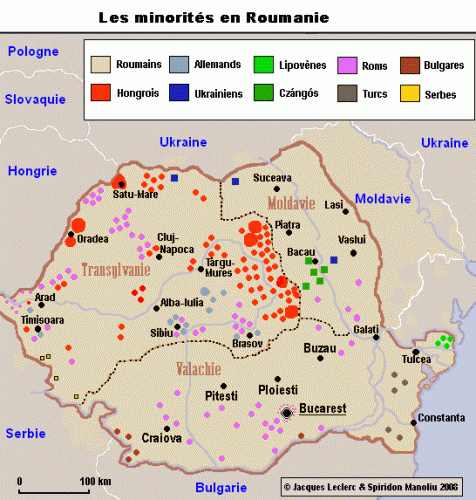

 del.icio.us
del.icio.us
 Digg
Digg Cette vision a été élaborée en utilisant une méthodologie fondée sur de nombreux emprunts aux enseignements de Marcel Merle (1), à la méthode prospective d'Hugues de Jouvenel et à l'œuvre d'Edgar Morin avec lesquels j'ai eu la chance de partager des réflexions dans le cadre de Futuribles et de la Fondation pour les études de défense à l'époque où elle était présidée par le général Buis.
Cette vision a été élaborée en utilisant une méthodologie fondée sur de nombreux emprunts aux enseignements de Marcel Merle (1), à la méthode prospective d'Hugues de Jouvenel et à l'œuvre d'Edgar Morin avec lesquels j'ai eu la chance de partager des réflexions dans le cadre de Futuribles et de la Fondation pour les études de défense à l'époque où elle était présidée par le général Buis. 

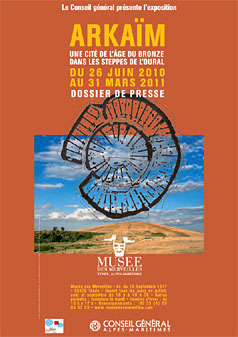


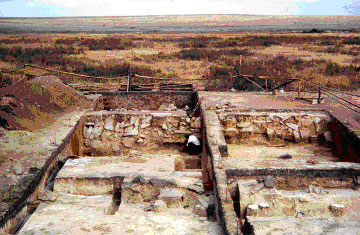 Dans le cadre de la Contrée de cités, les cités fortifiées se situent à une distance comprise entre 40 et 60 km les unes des autres. Le lieu de construction choisi se révèle toujours sec et plat, surélevé de quelques mètres au-dessus du niveau de l'eau, et délimité sur ses côtés par des fleuves et des pentes naturels. Grâce à des recherches archéologiques récentes et à l'observation de photographies aériennes, il a été possible de reconnaître la succession précise des divers systèmes d'aménagements : les structures de forme ovale sont les plus anciennes, remplacées plus tardivement par des structures en forme de cercle ; enfin, les systèmes de fortification rectangulaires sont les plus récents.
Dans le cadre de la Contrée de cités, les cités fortifiées se situent à une distance comprise entre 40 et 60 km les unes des autres. Le lieu de construction choisi se révèle toujours sec et plat, surélevé de quelques mètres au-dessus du niveau de l'eau, et délimité sur ses côtés par des fleuves et des pentes naturels. Grâce à des recherches archéologiques récentes et à l'observation de photographies aériennes, il a été possible de reconnaître la succession précise des divers systèmes d'aménagements : les structures de forme ovale sont les plus anciennes, remplacées plus tardivement par des structures en forme de cercle ; enfin, les systèmes de fortification rectangulaires sont les plus récents.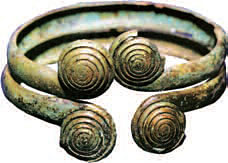 de la Contrée de cités possèdent deux fonctions bien distinctes : utilitaire et sémantique. La poterie, par exemple, est ornée de motifs géométriques qui symbolisent les différentes forces de la nature - cercles, carrés, losanges, triangles, croix gammées - qui se retrouvent également dans l'aspect général des colonies et des constructions tombales. D'autres objets sont également décorés : il s'agit de petites sculptures anthropomorphes et zoomorphes en pierre, de pilons, de coupes en pierre ou de manches d'armes et d'outils.
de la Contrée de cités possèdent deux fonctions bien distinctes : utilitaire et sémantique. La poterie, par exemple, est ornée de motifs géométriques qui symbolisent les différentes forces de la nature - cercles, carrés, losanges, triangles, croix gammées - qui se retrouvent également dans l'aspect général des colonies et des constructions tombales. D'autres objets sont également décorés : il s'agit de petites sculptures anthropomorphes et zoomorphes en pierre, de pilons, de coupes en pierre ou de manches d'armes et d'outils.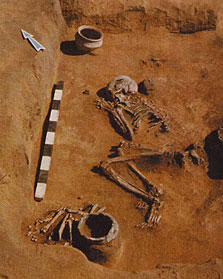

 Les communautés de la Contrée de cités se divisaient de manière tripartite en guerriers, prêtres et artisans, comme c'est typiquement le cas au sein des sociétés indo-européennes. On ne peut toutefois reconnaître l'existence d'un pouvoir détenu par un chef de tribu unique : grâce aux études menées sur les rites funéraires et les sépultures, il a été possible de conclure que la société de la Contrée de cités était en fait hiérarchisée et rassemblée autour d'une élite. L'autorité de ce groupe d'individus n'était pas fondée sur des contraintes économiques mais sur des valeurs religieuses traditionnelles. Les membres de l'élite tenaient le rôle de prêtres et disposaient également d'une position importante dans le domaine militaire. La femme possédait un statut social élevé et la part jouée d'une manière générale par les femmes dans la culture de la Contrée de cités était très développée.
Les communautés de la Contrée de cités se divisaient de manière tripartite en guerriers, prêtres et artisans, comme c'est typiquement le cas au sein des sociétés indo-européennes. On ne peut toutefois reconnaître l'existence d'un pouvoir détenu par un chef de tribu unique : grâce aux études menées sur les rites funéraires et les sépultures, il a été possible de conclure que la société de la Contrée de cités était en fait hiérarchisée et rassemblée autour d'une élite. L'autorité de ce groupe d'individus n'était pas fondée sur des contraintes économiques mais sur des valeurs religieuses traditionnelles. Les membres de l'élite tenaient le rôle de prêtres et disposaient également d'une position importante dans le domaine militaire. La femme possédait un statut social élevé et la part jouée d'une manière générale par les femmes dans la culture de la Contrée de cités était très développée..jpg)

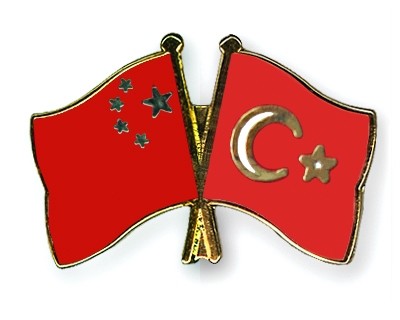
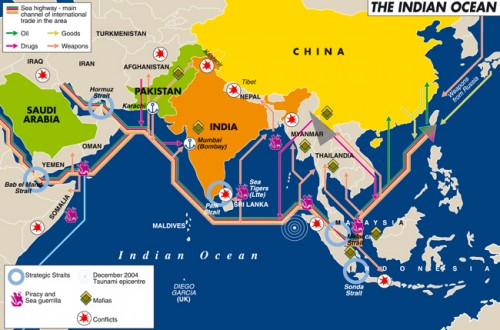
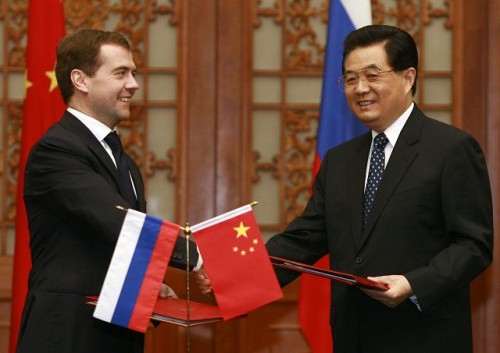




 Im Im vergangenen Monat hat Obamas Präsidialamt dem US-Kongress einen Bericht übermittelt, in dem der pakistanischen Armee vorgeworfen wurde, sie vermeide »militärische Einsätze, die sie in direkten Konflikt mit den afghanischen Taliban oder mit al-Qaida-Kämpfern bringen würden«, dies sei eine »politische Entscheidung«. Der Druck, den die USA in den vergangenen Monaten erzeugt haben, um den Krieg in Afghanistan auf das benachbarte Kirgisistan und jetzt auch Pakistan auszuweiten, birgt die Gefahr, dass in der gesamten Region, die ohnehin zu den instabilsten und chaotischsten der ganzen Welt zählt, ein Krieg ausgelöst wird, bei dem zwei Atommächte, nämlich Indien und Pakistan, in eine direkte Konfrontation geraten könnten. Die Politiker in Washington scheinen nicht den geringsten Schimmer von der komplizierten, historisch gewachsenen Kluft zwischen den Stämmen und Ethnien in der Region zu haben. Anscheinend glauben sie, mit Bomben ließe sich alles lösen.
Im Im vergangenen Monat hat Obamas Präsidialamt dem US-Kongress einen Bericht übermittelt, in dem der pakistanischen Armee vorgeworfen wurde, sie vermeide »militärische Einsätze, die sie in direkten Konflikt mit den afghanischen Taliban oder mit al-Qaida-Kämpfern bringen würden«, dies sei eine »politische Entscheidung«. Der Druck, den die USA in den vergangenen Monaten erzeugt haben, um den Krieg in Afghanistan auf das benachbarte Kirgisistan und jetzt auch Pakistan auszuweiten, birgt die Gefahr, dass in der gesamten Region, die ohnehin zu den instabilsten und chaotischsten der ganzen Welt zählt, ein Krieg ausgelöst wird, bei dem zwei Atommächte, nämlich Indien und Pakistan, in eine direkte Konfrontation geraten könnten. Die Politiker in Washington scheinen nicht den geringsten Schimmer von der komplizierten, historisch gewachsenen Kluft zwischen den Stämmen und Ethnien in der Region zu haben. Anscheinend glauben sie, mit Bomben ließe sich alles lösen. Anfang dieses Jahres hat China angekündigt, in Pakistan zwei Atomkraftwerke bauen zu wollen, eine strategische Antwort auf das Nuklearabkommen zwischen Indien und den USA. Dem Vernehmen nach verhandelt der staatliche chinesische Atomkonzern China National Nuclear Corporation zurzeit mit den pakistanischen Behörden über den Bau eines Atomkraftwerks mit einer Leistung von einem Gigawatt.
Anfang dieses Jahres hat China angekündigt, in Pakistan zwei Atomkraftwerke bauen zu wollen, eine strategische Antwort auf das Nuklearabkommen zwischen Indien und den USA. Dem Vernehmen nach verhandelt der staatliche chinesische Atomkonzern China National Nuclear Corporation zurzeit mit den pakistanischen Behörden über den Bau eines Atomkraftwerks mit einer Leistung von einem Gigawatt.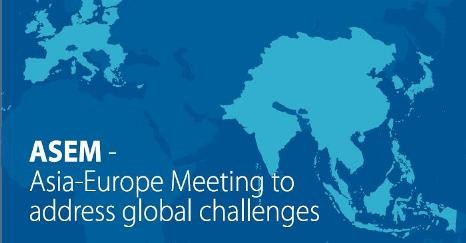
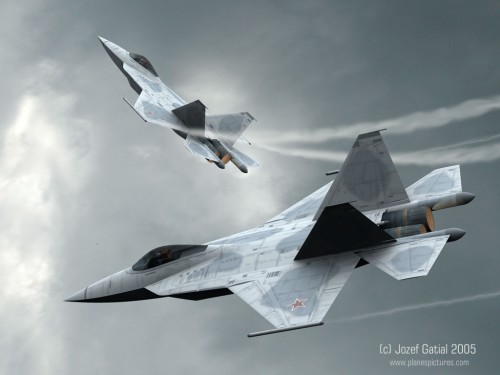
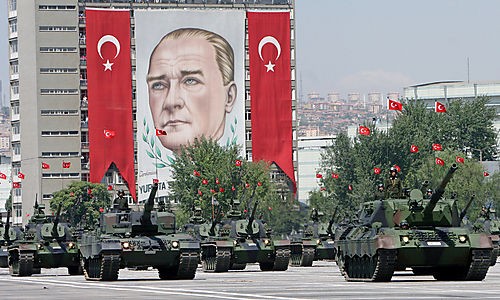

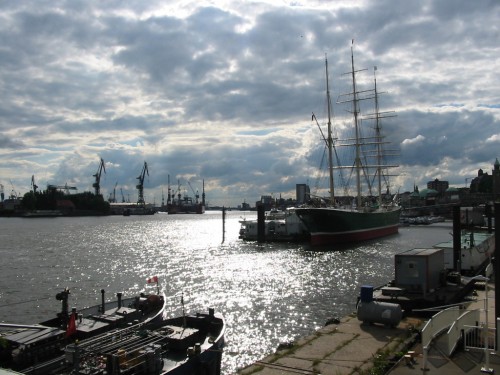
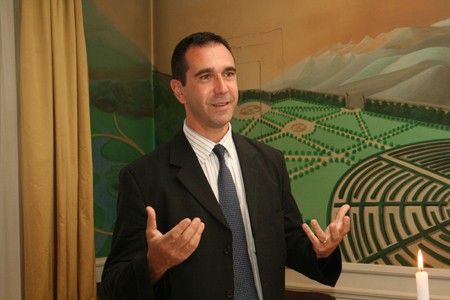
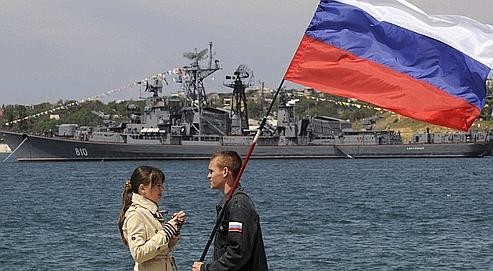
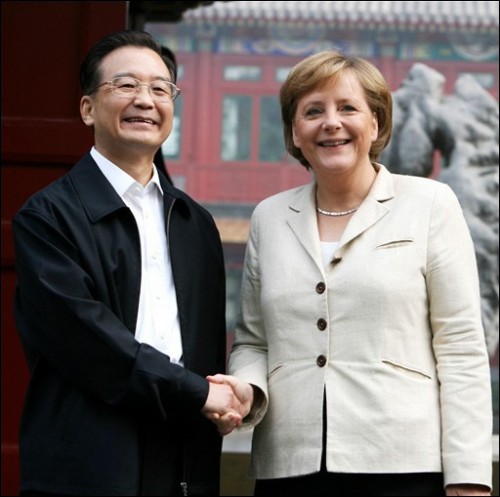
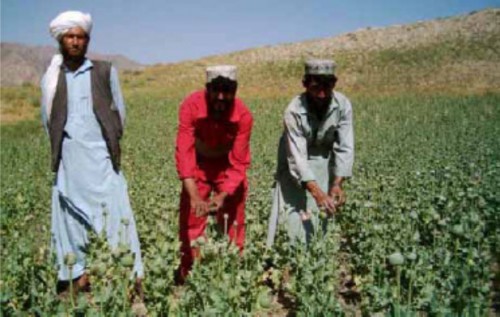



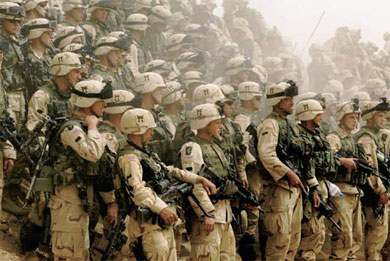
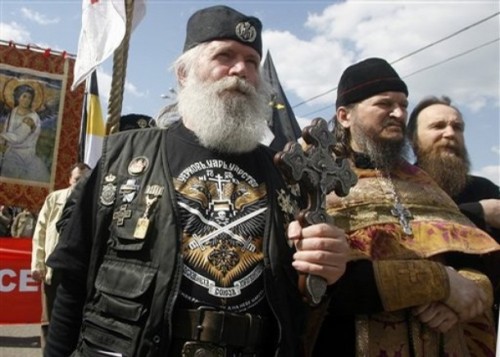

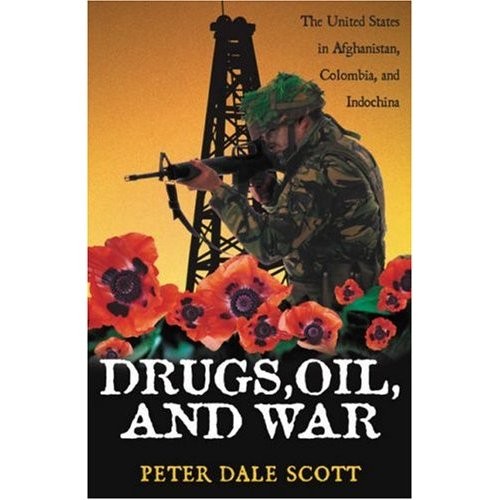 A geopolitical approach aimed at understanding the relationship between the worldwide US strategy and the presence of North American forces in Afghanistan is given. The US penetration in the Eurasian landmass is stressed particularly with regard to the Central Asian area, considered as the underbelly of Eurasia in the context of the US geopolitics. In order to determine the real players in the Afghan theatre, a critics is moved to some general concepts used in geopolitical and international relations studies. The main characteristics
A geopolitical approach aimed at understanding the relationship between the worldwide US strategy and the presence of North American forces in Afghanistan is given. The US penetration in the Eurasian landmass is stressed particularly with regard to the Central Asian area, considered as the underbelly of Eurasia in the context of the US geopolitics. In order to determine the real players in the Afghan theatre, a critics is moved to some general concepts used in geopolitical and international relations studies. The main characteristics